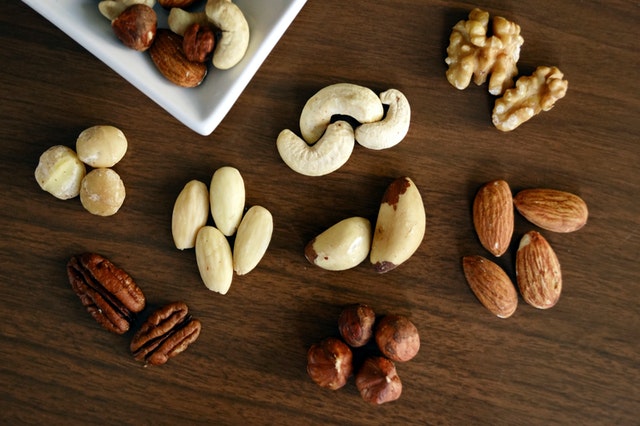Introduction: Sugar and Children
Childhood and sugar are inextricably related. There are very few things a child like more than her sugary treats. Their world lights up with sugar in the form of chocolates, colourful candies, and other sweets. Sugar is so enormously loved by the children that parents often use them as rewards for good behaviour or for a job well done. The supply of sugar is also incessant. In addition to the parents, sugar in the form of chocolates and candies also come from visiting relatives and acquaintances, school friends, and from every other conceivable places. The result, needless to say, turns pretty debilitating. Excessive sugar in foods have long lasting health implications. In this article we shall discuss about the effects of too much sugar on children.
Recommended Quantity of Sugar for children

The World Health Organisation (WHO) in its new guidelines for sugar intake for adults and children have recommended reduced intake of free sugar throughout the life. According to WHO the intake of free sugar should be less than 10% of total energy intake. A further reduction to below 5% of total energy intake will have further benefits, according to them.
As per the American Heart Association (AHA) children below 2 years old should not have any free sugar at all. For children between 2-18 years old, recommended daily intake of sugar is 25 grams (6 teaspoons) or less. A study has found that more than 81% of children in the US eat more sugar than this recommended quantity. This, in turn, often leads to a higher BMI when they become older.
Harmful Effects of having too much sugar on children
There are raging controversies among scientists about addictive properties of sugar. Some believe that sugar can be more addictive than cocaine, citing the immediate pleasure caused by the release of a flood of dopamine from eating sugar make one addicted to sugar. While other scientists disagree in equating sugar with drugs; the harmful effects of eating too much sugar in diet remains incontrovertible.

1. Obesity and having too much sugar on diet
Malnutrition among overweight kids is difficult to ascertain. When too much sugary foods are consumed, the quantity of nutritious food in diet automatically gets reduced. Sugary foods lead to obesity that can have several long-term consequences, including an onset of cardiovascular diseases, diabetes, fatty liver, joint pain and more.
2. Suppression of Immune system.
Eating sugary foods is directly related to the suppression of immune system. White blood cells in our body are responsible for fighting off infections. These white blood cells are highly affected by excess sugar consumption. They cannot do their jobs as well. Therefore, consuming a lot of sugar through foods and beverages reduces our body’s innate ability to ward off diseases.
3. Increased risk of diabetes
While direct correlation of developing type 2 diabetes with consuming sugar have not been established, it is found that people who regularly drink sugar sweetened beverages have a 25% more risk of developing diabetes. In fact, countries where sugar consumption is highest also have highest rates of type 2 diabetes, whereas those with lowest consumption have lowest rates. Diabetes is a terrible condition that may harm a child’s kidneys, eyes and blood vessels.
4. Effect of having too much sugar on the eyesight of children
An increased sugar content in diet may lead to a swelling of the eyes that in turn may cause reduced or blurry vision.
5. Digestive issues
Excessive sugar in diet reduces the effectiveness of good bacteria in the gut. As gut bacteria help in digestion, this leads to an increased possibility of indigestion, heartburn, gas etc.
6. Tooth Decay
Eating sugary foods is directly responsible for decayed tooth among children
7. Sugar and the Brain
A study conducted at the University of Southern California found that excess consumption of sugar intake interferes with normal functioning of brain that includes hindrance in remembering minor details about one’s environment. UCLA researchers have found sugar intake slows down the brain. The researchers found in their experiment with rats than too much fructose had damaged the rats’ synaptic activity
Alternatives to sugar

Whole fruits –
Fruits are both sweet and colourful and it would not be an exaggeration to call them nature’s candies. Although they too have sugar, it isn’t refined or processed sugar that is found in most desserts. Two to three servings of fruits like apples, bananas, berries, pomegranate can meet sweet craving of a child.
Dry fruits–
Dry fruits like raisins and dates are rich in minerals and fibre. Low quantities of dry fruits can act as an alternative to sugar.
Peanut Butter–
Peanut butter in appropriate quantities is tasty and healthy snacks. When mixed with fruits peanut butter can help satisfy a child’s sweet tooth. It is also a very good source of healthy fat.
Organic honey–
1-2 teaspoons of Organic Honey in a week is good for health. In addition to meeting a child’s sweet cravings, it is also a good source of antioxidant, along with antibacterial and antifungal properties.
Jaggery–
Jaggery, like organic honey, if eaten in moderation (2 spoons in a week), can be a healthy alternative to processed sugar. It is also rich in antioxidants and helps in strengthening immunity
Greek yoghurt–
Greek Yoghurt, without added flavours or sugar, can be used as a tasty substitute to sugar. One can prepare healthy and delicious sundaes with Greek yogurt using nuts and fruits.
To separate a child from her daily dose of sugar is indeed a difficult job, especially if she is used to having a lot of it in her diet. However, a concerted effort must be made to reduce the free sugar intake among children, seeing how long term and debilitating health effects of too much sugar on children.



One Comment
zeh1ihDGwF5t5ZeJcuBSAMZkM688ivJcQk3GLmENgHi9Zd5NeLkkeJtG251WnMf1dN7hcIXO23EGA0uOx28sjZ8mnwetuHKPWwvbcf8up3goQ1nF04L8Jpa3PgbEEfszPTA3Kvi1RA9iHA6CpQlJXXObCCLExZEFCyVZ9bM1VdG1SZHuWC2b2D